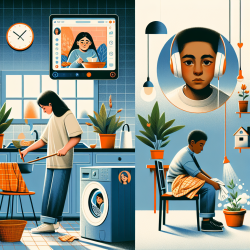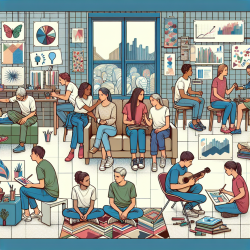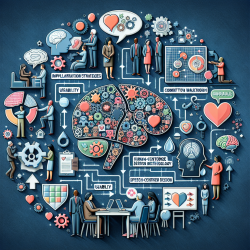Introduction
Adolescents with Autism Spectrum Disorder (ASD) often face challenges in mastering daily living skills (DLS), which are crucial for a successful transition into adulthood. A recent study titled Iterative Development of a Daily Living Skills Intervention for Adolescents with Autism Without an Intellectual Disability highlights the development and efficacy of the Surviving and Thriving in the Real World (STRW) program. This intervention aims to bridge the gap between cognitive abilities and practical life skills in adolescents with ASD without intellectual disabilities.
The Importance of Daily Living Skills
Daily living skills encompass personal, domestic, and community tasks essential for independence. These skills, such as personal hygiene, cooking, laundry, and money management, are foundational for achieving adult milestones like managing college classes, maintaining a job, and living independently. Unfortunately, many adolescents with ASD struggle with these skills, impacting their ability to thrive in the real world.
STRW: A Comprehensive Intervention
The STRW program is a 14-session group treatment designed for adolescents with ASD and their parents. It incorporates evidence-based strategies such as task analysis, modeling, and reinforcement to teach critical daily living skills. The program also involves parents as coaches, emphasizing the importance of parental involvement in skill acquisition and generalization.
Transition to Telehealth
With the onset of the COVID-19 pandemic, the STRW program adapted to a telehealth format, allowing adolescents to practice skills in their home environment. This shift not only maintained the program's efficacy but also enhanced its flexibility and accessibility, making it easier for families to participate without the need for travel.
Encouraging Practitioners to Implement STRW
Practitioners working with adolescents with ASD are encouraged to consider implementing the STRW program or similar interventions. The program's success in improving daily living skills highlights the importance of structured, evidence-based approaches in promoting independence among adolescents with ASD. Additionally, practitioners are urged to explore further research and adaptations to enhance the program's reach and effectiveness.
Conclusion
The STRW program represents a significant step forward in addressing the daily living skills deficits faced by adolescents with ASD. By equipping these individuals with the skills necessary for independence, we can improve their adult outcomes and overall quality of life. For practitioners, adopting and adapting such interventions can lead to transformative changes in the lives of adolescents with ASD and their families.
To read the original research paper, please follow this link: Iterative Development of a Daily Living Skills Intervention for Adolescents with Autism Without an Intellectual Disability.










